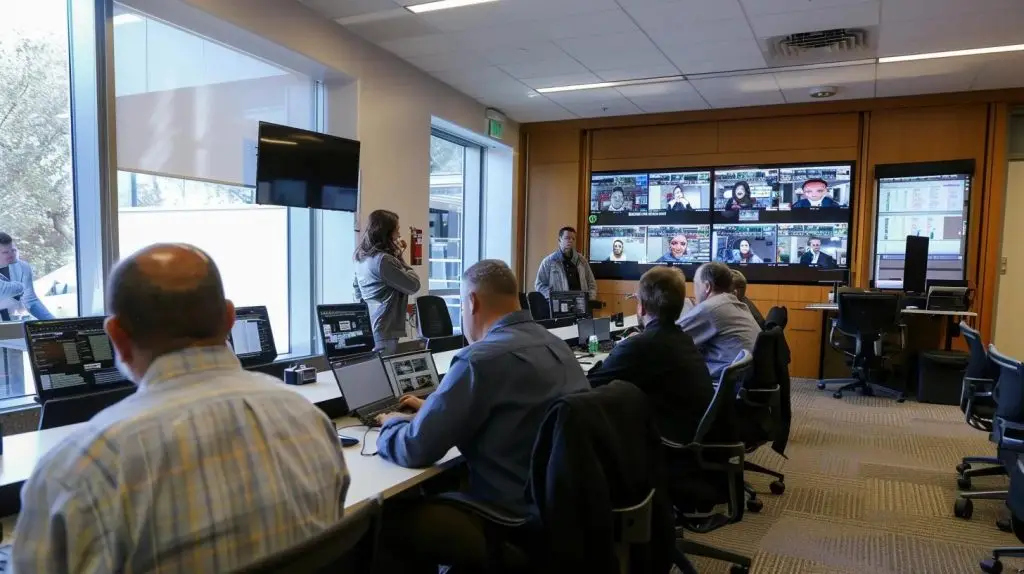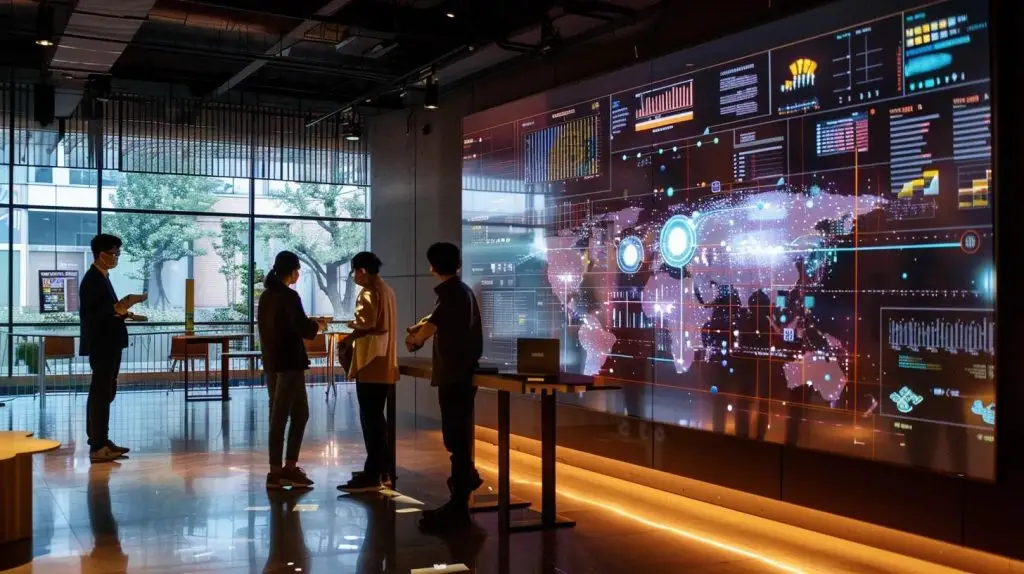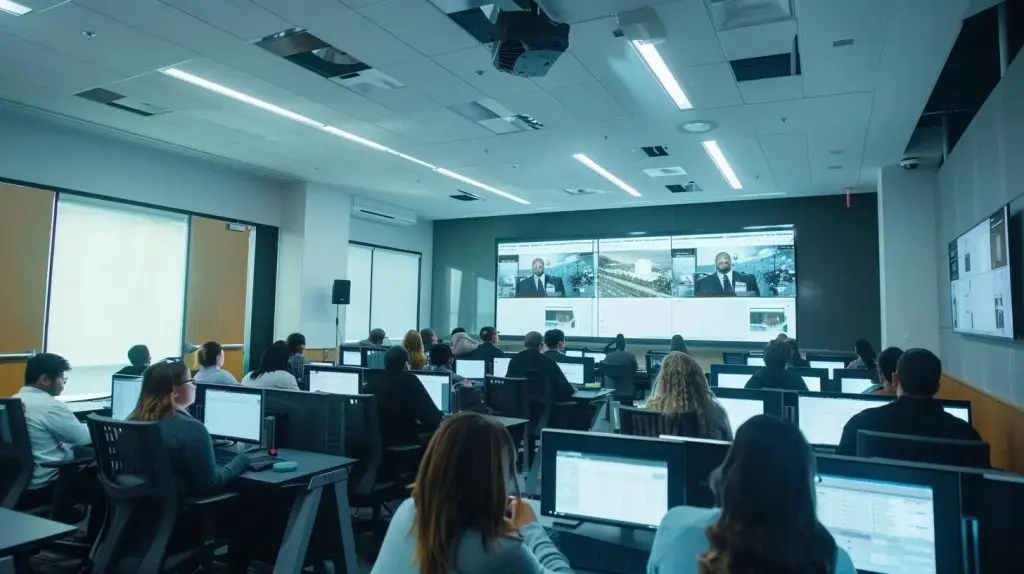Transform Your Approach With Incident Response Training Solutions
Unlock Effective Incident Response Training Solutions
In today’s ever-changing cyber landscape, businesses face relentless challenges from sophisticated cyber threats such as ransomware, advanced persistent threats, and coordinated network intrusions. Effective incident response training is no longer optional; it is a critical component of any robust cybersecurity strategy, especially as many organizations now incorporate managed-it-services into their defense framework. With the increasing frequency of cyberattacks and the rising complexity of digital infrastructures, organizations must empower their teams with the skills required to identify, manage, and mitigate security incidents in real time, leveraging solutions like managed-network-firewall-services to bolster their proactive measures. The LDR553 Incident Response Training Program has emerged as a vital resource designed to build comprehensive incident handling capabilities and to cultivate a deep understanding of both technical and tactical defense measures.
This training program is tailored to equip cybersecurity professionals, incident commanders, and IT specialists with the necessary expertise to lead coordinated response efforts. Its course structure not only covers technical proficiencies but also emphasizes legal, ethical, and operational dimensions of incident management. Whether it is through immersive hands-on labs, realistic simulations that mimic real-world cyber events, or methodical frameworks that guide post-incident analysis, LDR553 helps organizations to dynamically prepare for emerging threats. By bridging the gap between theory and practice, this program fosters a culture of continuous improvement and proactive risk management.
Moreover, the LDR553 course is designed to address the evolving challenges posed by modern cyber threats. It integrates threatintelligence with practical strategies to enhance communication, coordination, and decision-making during critical incidents. This training enables participants to better analyze attacker tactics, leading to more efficient vulnerability management and enhanced resilience across their digital environments. As a result, businesses not only improve their incident detection and response times but also gain a competitive edge by ensuring continuity and minimizing potential data breaches or service disruptions.
The following sections outline key competencies, advanced capabilities, ideal candidate profiles, practical applications, and certification details that define the LDR553 training experience. By providing in-depth insights into each aspect of the program, this article aims to educate business owners, board members, and cybersecurity executives on the significant value that effective incident response training can bring to their organizations.
Key Takeaways
- The LDR553 Incident Response Training Program provides comprehensive skills to manage cyber incidents effectively.
- It covers technical, legal, and ethical aspects of incident management.
- The training emphasizes hands-on learning and realistic simulations for practical experience.
- Ideal for cybersecurity professionals, the program is designed to boost organizational resilience.
- Certification through LDR553 enhances career prospects and supports compliance with industry standards.
Mastering Core Competencies With the LDR553 Incident Response Training Program

LDR553’s curriculum is designed to create a holistic incident response capability that addresses both technical and operational challenges. The program begins by focusing on building a comprehensive incident handling capability that enables organizations to detect, analyze, and quickly respond to cyber threats. By integrating core cybersecurity principles with practical, scenario-based training, participants learn how to manage incidents effectively in real time.
Building a Comprehensive Incident Handling Capability Through LDR553
The first pillar of LDR553 is establishing a strong foundation for incident handling. Trainees learn to build incident response plans, design communication strategies, and set up operational protocols. This foundation is essential for enabling a structured, repeatable process when a threat materializes. Techniques such as threat modeling, risk assessment, and response plan formulation are covered in detail. The program emphasizes creating a resilient process that not only addresses immediate threats but also incorporates continuous improvement for future incident prevention.
Acquiring Critical Technical Skills for Cyber Incident Scenarios
Technical proficiency is paramount in the realm of cybersecurity. LDR553 provides hands-on labs that simulate real cyberattack scenarios, allowing participants to practice skills such as malware analysis, log correlation, and forensic data collection. These exercises are designed to improve speed and accuracy in identifying cyber threats. The training also includes the effective use of cybersecurity tools and platforms, reinforcing the technical capabilities necessary for credible incident resolution.
Analyzing Attacker Tactics and Techniques Within LDR553
A major component of LDR553 is the analysis of attacker tactics. This module teaches professionals how to decipher threat patterns and anticipate potential vulnerabilities. Trainees study case studies of past cyber incursions to understand the modus operandi of sophisticated adversaries. The focus on tactics such as phishing, lateral movement, and evasion techniques supports a nuanced understanding of threat dynamics. In turn, this fosters a proactive rather than reactive posture against emerging cyber threats.
Navigating Legal and Ethical Aspects of Incident Management
Incident response is not solely a technical endeavor; it also entails navigating complex legal and ethical considerations. The LDR553 program integrates legal compliance, privacy issues, and ethical dilemmas into its curriculum. Professionals gain insight into the frameworks that govern data breach reporting, stakeholder notification procedures, and regulatory requirements such as ISO27001. This aspect of the training ensures that responses are not only effective but also aligned with legal standards and ethical business practices.
Applying LDR553 Frameworks to Real-World Cyber Events
Finally, LDR553 transitions theory into practice by applying learned frameworks to simulated real-world scenarios. This integration prepares participants to implement their strategies during actual cyber incidents. The course leverages a variety of case studies and role-playing exercises that mimic the pressures and complexities of real incidents. These practical applications ensure that participants can translate classroom knowledge into actionable incident response strategies within their organizations.
Realize Advanced Capabilities Through LDR553 Effective Incident Response Training Solutions

The LDR553 training program is specifically designed to transform participants into advanced incident response practitioners. It builds on fundamental skills and takes them to the next level, enabling professionals to lead coordinated defense efforts against sophisticated cyber adversaries.
Leading Coordinated Defense and Response Efforts
One of the primary advanced capabilities that LDR553 instills is the ability to lead a team during a cyber crisis. The training emphasizes multi-disciplinary collaboration, ensuring that incident commanders can effectively coordinate between technical teams, management, and stakeholders. With clearly defined roles and responsibilities, teams are trained to operate cohesively under pressure, significantly reducing response times. This coordinated approach is critical to mitigating the impact of cyberattacks and preserving critical assets.
Implementing Proactive Strategies for Cyber Resilience
Proactivity is crucial in today’s cyber environment, and LDR553 equips organizations with strategies to anticipate and counteract potential threats before they escalate. This includes the development of proactive threathunting methodologies and continuous monitoring practices. Advanced techniques such as predictive analysis and automated response strategies are introduced, allowing teams to identify vulnerabilities in their systems and patch them before they can be exploited by threat actors.
Gaining Practical Experience via LDR553 Realistic Simulations
Simulation-based training is at the heart of LDR553. Participants undergo realistic, hands-on simulations that recreate the dynamics of cyberattacks. These simulations not only bolster technical skills but also enhance decision-making processes under stress. The program includes multi-stage exercises that mirror the lifecycle of an actual cyber incident—from initial detection to restorative actions. By engaging in these rigorous drills, professionals build confidence and improve their readiness to manage live incidents effectively.
Managing Complex Security Incidents With LDR553 Methodologies
Complex security incidents require a methodical approach that combines technical analysis with strategic leadership. LDR553 provides a structured methodology for managing multifaceted cyber incidents, including incident documentation and post-incident reporting. Through its comprehensive training modules, professionals learn how to assess the scope of an incident, determine appropriate remediation strategies, and implement measures to prevent recurrence. This systematic approach enhances an organization’s cyber resilience while providing critical insights for future improvements.
Identifying Ideal Candidates for the LDR553 Cyber Management Course

Not every professional may be the ideal candidate for advanced incident response training. The LDR553 program distinctly identifies those who will benefit most from its comprehensive curriculum, ensuring that both experienced and emerging cybersecurity professionals can find value in the course.
Professionals Who Benefit Most From LDR553 Training
Cybersecurity analysts, incident commanders, and IT security managers are the primary beneficiaries of the LDR553 program. These professionals are often on the front lines of cyber defense and require a deep understanding of incident management principles. The training helps them stay ahead of rapidly evolving threats, enhances their response strategies, and supports effective decision-making during incidents. In addition, executives and risk managers can also gain significant insights into the strategic aspects of incident response, allowing for informed investment in IT and cyber defense measures.
Recommended Experience for Optimal LDR553 Learning Outcomes
While the course is designed to be accessible to those with varying levels of expertise, a basic understanding of network operations, computer forensics, and cybersecurity protocols is recommended. Participants with prior practical experience in handling cybersecurity incidents or those who have previously engaged in threat analysis tend to derive greater benefits from the advanced modules. This foundational knowledge enables them to faster assimilate the advanced topics and apply them effectively in their roles.
Advancing Your Career Path With LDR553 Expertise
Gaining expertise in incident response through LDR553 can be a significant career booster. The training enhances technical skills, managerial capabilities, and strategic thinking, making graduates highly valuable to organizations seeking to bolster their cybersecurity posture. Whether moving into senior leadership roles or specializing further in digital forensics and threathunting, the skills acquired in LDR553 considerably improve professional standing and career advancement prospects.
Roles and Responsibilities Suited for LDR553 Graduates
Graduates of the LDR553 training program are well-prepared for roles such as Incident Response Manager, Cyber Incident Commander, and Security Operations Center (SOC) Lead. Additionally, they become key advisors to senior management, contributing to strategy development and risk assessment. Their enhanced skill set makes them indispensable in environments where rapid and effective cyber incident resolution is critical. Responsibilities typically include coordinating multi-departmental responses, conducting incident post-mortems, and developing policies that drive continuous improvement in cyber defense capabilities.
Applying LDR553 Knowledge for Tangible Security Improvements

The practical value of LDR553 extends well beyond classroom learning. Organizations can translate this knowledge into tangible security improvements that enhance their overall cyber resilience and operational stability. The course provides actionable methodologies that integrate seamlessly into existing security frameworks.
Engaging With LDR553 Hands-on Labs and Practical Drills
Hands-on labs are a central component of the LDR553 program, enabling participants to apply theoretical knowledge in a controlled, practical environment. These labs simulate real-world cyber incidents and require teams to work collaboratively under tight deadlines. By engaging in such drills, participants refine their technical skills and decision-making processes, which are later applied during actual incidents. The repetitive nature of these exercises ensures that responses become nearly second nature, reducing the margin for error during crises.
Translating LDR553 Course Material Into Organizational Action Plans
A significant strength of the LDR553 program is its ability to translate sophisticated incident response methodologies into clear, actionable organizational strategies. The course material is designed to be comprehensive yet adaptable, allowing organizations to tailor incident response plans to their specific operational requirements. This transfer of knowledge is crucial—it transforms incident response from a reactive procedure into a proactive organizational asset, empowering teams to manage unexpected threats with calibrated precision.
Utilizing LDR553 Methodologies for Immediate Security Impact
Once trained, professionals can immediately apply LDR553 methodologies to improve the security posture of their organizations. This includes updating incident response protocols, enhancing communication strategies during crises, and deploying advanced tools for threat detection and mitigation. The training’s focus on immediate actionable steps ensures that participants can deliver measurable improvements in response times and incident resolution effectiveness. Organizations often report a significant decrease in system downtime and operational disruption after implementing these advanced techniques.
Developing Actionable Post-Incident Reports With LDR553 Guidance
Post-incident analysis is critical for continuous improvement in cybersecurity. LDR553 teaches best practices for developing comprehensive post-incident reports that document the nature, impact, and resolution of cyber events. These reports enable teams to learn from each incident, identify recurring vulnerabilities, and refine their overall incident response strategy. With this systematic approach, organizations can not only recover more quickly but also build more robust defenses against future attacks, ultimately strengthening their long-term security posture.
LDR553: A Cornerstone of Robust Incident Response Training Programs

The LDR553 program is widely recognized as a fundamental building block for developing robust incident response capabilities. Its comprehensive approach ensures that graduates possess a deep, versatile skill set that enhances both personal career trajectories and organizational security.
Positioning LDR553 Within Your Professional Development Journey
By integrating LDR553 into their professional development, individuals gain a competitive edge in the cybersecurity field. The course not only addresses current industry challenges but also prepares professionals for the evolving demands of the digital age. Its curriculum, which combines technical proficiency with strategic insights, is designed to support long-term career growth and inspire confidence among peers and employers alike.
Strengthening Organizational Cyber Defense With LDR553 Certified Staff
Organizations that invest in LDR553 certification for their staff benefit from a more coordinated and resilient defense posture. Certified professionals are equipped to lead incident response teams, enhance threat detection mechanisms, and implement proactive security measures. Their expertise helps bridge the gap between technical support and strategic management, ensuring that organizations can quickly adapt to the fast-paced nature of cyber threats.
Fostering Continuous Improvement in Your Team's Incident Response Approach
Continuous improvement is a core tenet of effective cybersecurity. LDR553 emphasizes ongoing learning, regular skill refreshers, and adapting incident response strategies based on the latest threatintelligence. This commitment to evolution not only optimizes individual performance but also fosters a culture of innovation and resilience within teams, encouraging a proactive approach to security challenges.
Integrating LDR553 Learnings With Existing Security Frameworks
The methodologies taught in LDR553 are designed to be integrated with existing security frameworks and protocols. This integration ensures that the advanced techniques and strategies acquired through the program complement and enhance current defenses. By weaving these learnings into their day-to-day operations, organizations create a cohesive and adaptive security ecosystem that is better prepared to manage and mitigate cyber incidents.
LDR553 Course Details and Certification Achievement

Understanding the specifics of the LDR553 training course is essential for anyone considering investment in advanced incident response capabilities. This final section provides details on training formats, certification exams, and the value that certification brings to both professionals and organizations.
Accessing LDR553 Training Formats and Available Schedules
The LDR553 course is offered in various formats to accommodate the diverse needs of cybersecurity professionals. Options include in-person training sessions, virtual classrooms, and hybrid formats that combine hands-on labs with remote instruction. These flexible delivery methods ensure that participants can engage with the material in a way that best suits their learning style and schedule. Comprehensive scheduling options allow organizations to train multiple teams concurrently, optimizing resource allocation and minimizing downtime.
Preparing Strategically for the Associated GIAC Certification Examination
A crucial component of the LDR553 course is its alignment with the GIAC Certification Examination. The program is designed to prepare candidates thoroughly for the exam by covering all relevant topics, strategies, and scenarios they are likely to encounter. Detailed study guides, practice exams, and review sessions are integral parts of the curriculum, ensuring that each participant is well-prepared to demonstrate their expertise and achieve certification. Passing this exam not only validates one’s skills but also boosts professional credibility significantly.
Sustaining Your LDR553 Skills and Professional Standing Post-Certification
Certification is just the beginning of a continuous journey in the cybersecurity field. LDR553 emphasizes the importance of ongoing education and skill maintenance. Graduates are encouraged to participate in refresher courses, advanced training modules, and industry conferences. This sustained engagement ensures that professionals remain up-to-date with the latest cyber threat intelligence and emerging response strategies. As a result, certified professionals can continuously contribute to strengthening their organization’s defenses.
Understanding the Value of LDR553 in Meeting Compliance Requirements
Beyond enhancing operational capabilities, LDR553 provides significant value in terms of regulatory compliance. The training covers various legal and procedural requirements that help organizations adhere to standards such as iso27001-isms and other industry-specific guidelines. By aligning incident response practices with these frameworks, businesses not only enhance their security posture but also mitigate legal risks. This dual advantage of improved security and compliance positions LDR553 as an essential investment for any forward-thinking organization.
Final Thoughts
LDR553 sets itself apart as a comprehensive and transformative incident response training program, equipping teams with the practical skills and strategic insights necessary to combat advanced cyber threats. Through a blend of technical training, realistic simulations, and strategic planning, the program enhances both individual and organizational resilience. Its focus on continuous improvement and integration with existing security frameworks makes it an indispensable resource for modern cybersecurity teams. Embracing LDR553 signifies a commitment to proactive defense and long-term success in an ever-evolving digital landscape.
Frequently Asked Questions
Q: What makes the LDR553 Incident Response Training Program unique? A: LDR553 combines hands-on labs, realistic cyber simulations, and comprehensive modules that cover technical, legal, and strategic aspects of incident management. This integrated approach prepares participants to lead effective, coordinated responses to complex cyber threats.
Q: Who is the ideal candidate for LDR553 training? A: Ideal candidates include cybersecurity professionals, incident commanders, IT security managers, and executives involved in risk management. A basic understanding of network operations and cybersecurity protocols is recommended to maximize training outcomes.
Q: How does LDR553 prepare participants for real-world cyber incidents? A: The program utilizes realistic simulations, hands-on labs, and case studies to replicate actual cyberattack scenarios. These exercises enhance decision-making and technical skills, ensuring graduates are well-prepared to handle live incidents effectively.
Q: What certification does LDR553 prepare professionals for? A: LDR553 is closely aligned with the GIAC Certification Examination, preparing candidates with the knowledge and practical skills required to excel in this well-recognized certification. Certification verifies the professional’s expertise and enhances their credibility in the cybersecurity field.
Q: How does continuous training through LDR553 benefit an organization? A: Continuous training through LDR553 fosters an adaptive, proactive incident response culture. It ensures that staff remain current with emerging threats and technologies, ultimately leading to improved incident response times, better compliance, and stronger overall cybersecurity defenses.




